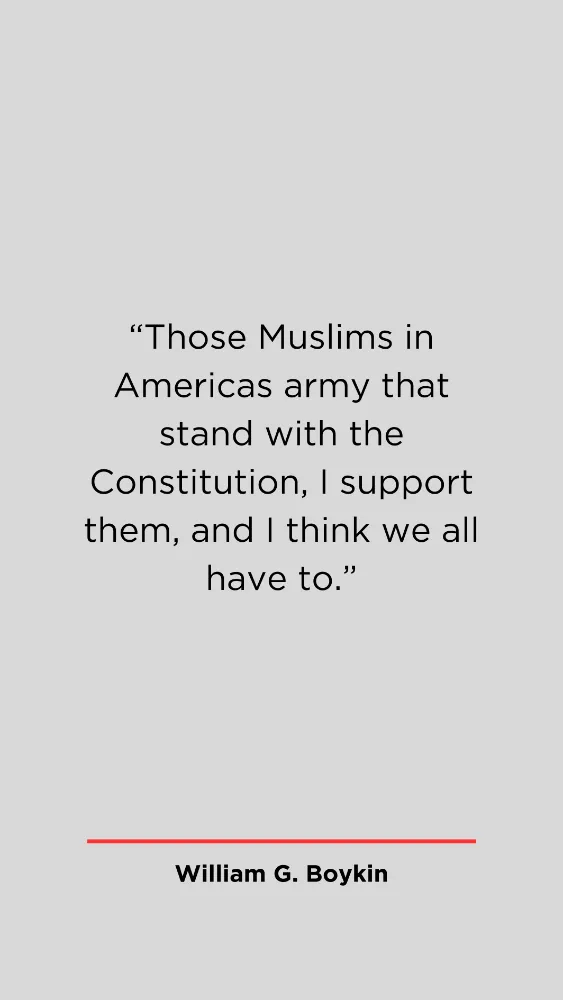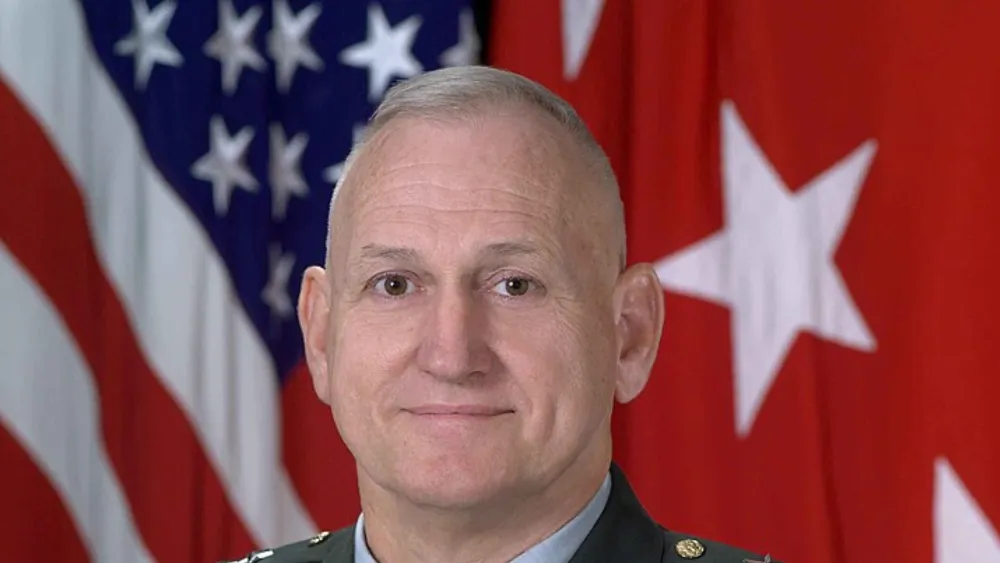William G Boykin, a retired American lieutenant general, held a significant role as the United States Deputy Undersecretary of Defense for Intelligence. He held this position during President George W. Bush’s time in office from 2002 to 2007.
In his impressive 36-year military career, Boykin spent 13 years with the Delta Force, participating in many well-known missions. These include the 1980 Iran hostage rescue and the 1992 search for Pablo Escobar in Colombia. In addition, the famous Black Hawk Down incident in Mogadishu, Somalia.
Besides his military career, he’s a successful author and a visiting professor at Hampden–Sydney College in Virginia. At that moment, he serves as the Executive Vice President of the Family Research Council. This key leadership position involves guiding and overseeing the activities of this influential organization.
William’s Family and Military Roots
Boykin came from North Carolina, where he spent his early years working on his grandparents’ tobacco farm. His family’s military legacy runs deep, as his father, a World War II Veteran, was wounded at Normandy.
Boykin’s own illustrious military journey commenced after he completed his education at Virginia Tech, which he attended on a football scholarship, earning a bachelor’s degree in English in late 1970.
On December 26, 1970, he took the oath as a soldier in the United States Army, and the following year, he successfully secured a position as an officer in the prestigious 1st Ranger Battalion.
In 1972, a deployment to Vietnam saw his combat tour come to an abrupt end after just three months due to the cease-fire.
William G. Boykin and his Military Career
When he first joined the military, Boykin had different jobs. He was in the 2nd Armored Division in Fort Hood, Texas, and later in the 101st Airborne Division during his time in Vietnam. He also became a commander in the 24th Infantry Division (Mechanized) in Fort Stewart, Georgia.
In 1978, at the age of 29, Boykin volunteered for and successfully completed a specialized selection course. It is an assignment to the 1st Special Forces Operational Detachment – Delta, also known as Delta Force.
Within this elite unit, he held multiple leadership positions, including operations officer, troop commander, squadron commander, deputy commander, and unit commander from July 1992 to July 1994.
Lieutenant Colonel Lewis H. “Bucky” Burruss, who played a role in the Delta Force selection process in early 1978, remembered initial doubts about Boykin due to a bad knee, saying, “I thought he would never make it… I hate to see this guy pushing himself, I don’t see how he can handle it with that bad knee, but he surprised us.”
At the time, Burruss described Boykin as “a Christian gentleman of the highest order.” Boykin himself believed that God played a part in his journey, stating, “God led me into the Delta Force… And He said to me, ‘This is where you ought to be.
A Journey Through Conflict of Wiliam G Boykin
In 1980, William G Boykin worked as the operations officer for Delta Force during the Iranian hostage rescue attempt. Sadly, the mission didn’t succeed in bringing back the 53 American hostages, which was a big disappointment.
However, Boykin found hope in the fact that none of the soldiers who had prayed together before the mission in the desert were killed or injured that night, which he saw as a miracle. In October 1983, Boykin was involved in Operation Urgent Fury, which was the invasion of Grenada.
Anti-aircraft fire wounded him during the Delta helicopter assault on Richmond Hill Prison. In 1989, he took part in the U.S. invasion of Panama, participated in Operation Acid Gambit, and attended the Army War College between 1990 and 1991.
Boykin’s Controversial Role in the Hunt for Pablo Escobar
In 1992 and the early part of 1993, when William G. Boykin held the rank of colonel, he led a mission in Colombia with a critical objective: the pursuit of the notorious drug lord Pablo Escobar.
As the mission unfolded, suspicions emerged that Boykin’s team may have played a role in Escobar’s eventual assassination. Furthermore, rumors swirled that the Pentagon regarded this mission as a resounding success for Delta Force.
An anonymous retired army general disclosed they’ve witnessed images of Escobar’s remains that aren’t accessible from afar. The assault team captured those shots These revelations were reported by Seymour Hersh. Therefore, adding intrigue to Boykin’s role in this significant operation.
William G Boykin and his Path Through Key Appointments
In April 1993, Boykin advised Attorney General Janet Reno during the Waco, Texas, standoff with the Branch Davidians. Later that year, he took part in the Battle of Mogadishu, also known as “Black Hawk Down.”
William G Boykin then worked at the CIA, starting as Deputy Director of Special Activities and rising to brigadier general. He handled the Deputy Director for Operations, Readiness, and Mobilization of the Army Staff.
Between 1998 and 2003, Boykin held leadership roles, including commanding the 1st Special Forces Command at Fort Bragg, North Carolina, and the United States Army John F. Kennedy Special Warfare Center.
In June 2003, William G. Boykin was appointed to the crucial role of Deputy Under Secretary of Defense for Intelligence. It is a high-ranking position within the Department of Defense. In this role, he worked under the guidance of Dr. Stephen Cambone, contributing to the strategic management of intelligence-related matters in the defense sector.

William G Boykin: Life after Retirement
Following his retirement on August 1, 2007, William Boykin transitioned into a new career phase by accepting a teaching position at Hampden–Sydney College. For nearly a decade, he shared his knowledge and experiences with students, contributing to the academic community.
However, in May 2016, a social media post on Boykin’s Facebook page caught attention, revealing his termination from the college. The catalyst for this decision stemmed from Boykin’s remarks regarding transgender individuals and their use of public restrooms.
His statement, “The first man who enters the restroom with my daughter won’t need surgery,” generated controversy. Despite the initial parting of ways, Boykin and the college later reconciled their differences, forging an agreement for an additional one-year contract. The college, however, vehemently refuted any allegations of a deliberate attempt to remove Boykin due to his contentious remarks.
An Inspiring Tale of Resilience and Faith
William G. Boykin’s journey is a symbol of resilience and faith. Despite facing challenges and controversies throughout his military and post-retirement career, Boykin’s unwavering faith and determination helped him navigate difficult situations and continue his path with resilience, positively impacting various roles.




